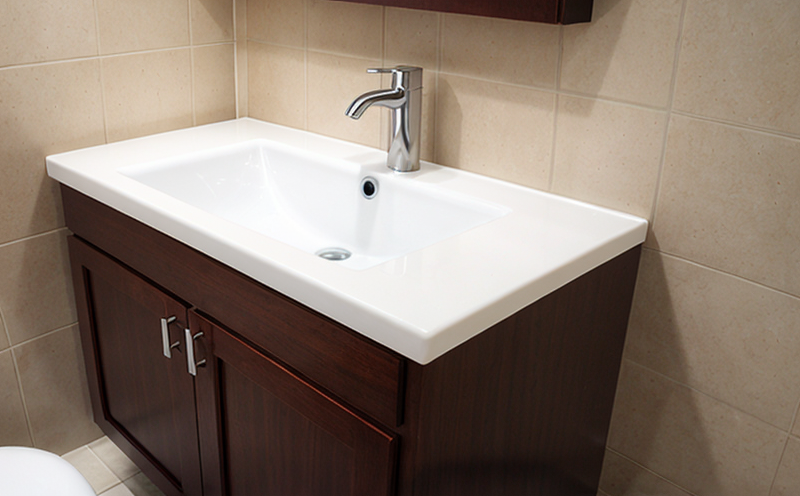EN 14428 Shower Enclosure Testing of Plastic Materials
The European Standard EN 14428 specifies the requirements and test methods for plastic materials used in shower enclosures. This standard ensures that products meet stringent safety, durability, and performance criteria to protect users from potential hazards.
Shower enclosures made of plastics are subject to a range of environmental factors including humidity, temperature fluctuations, and abrasive contact with hard surfaces during use. The test methods outlined in EN 14428 aim to replicate these conditions to evaluate the long-term performance and integrity of plastic materials used in such products.
The standard covers various aspects of material testing such as resistance to water absorption, mechanical strength under load, impact resistance, and dimensional stability. Compliance with this standard is essential for manufacturers who wish to ensure their products meet industry standards and can be marketed across Europe.
Testing according to EN 14428 involves multiple steps including sample preparation, conditioning, and the application of standardized test procedures. Specimens are subjected to different environments and loads to assess their ability to withstand real-world conditions over time.
The testing process typically begins with selecting appropriate specimens representative of the production batch. These samples undergo initial conditioning to standard environmental conditions before undergoing various mechanical tests. For instance, tensile strength tests measure how well the material resists being stretched until it breaks. Flexural strength tests evaluate bending resistance under load.
Impact resistance is another critical aspect tested using pendulum impact testers which simulate dropping weights onto the sample to assess its ability to absorb energy without fracturing. Additionally, water absorption tests determine how much moisture the material can absorb when exposed to water for a specified period. This helps in understanding whether the product might swell or change shape over time.
Dimensional stability tests ensure that the size and shape of the product remain consistent even after exposure to various environmental factors like humidity and temperature changes. These tests are crucial because any significant dimensional changes could affect fitment within bathrooms or showers, leading to leaks or poor performance.
The results from these tests provide valuable insights into the durability, safety, and overall quality of bathroom plastic enclosures. Compliance with EN 14428 not only enhances consumer confidence but also aids in maintaining high standards within the industry.
| Application | Test Method |
|---|---|
| Water Absorption Test | T501 - Standard Conditioning and Testing of Plastic Materials |
| Tensile Strength Test | ISO 528-2: Tension Testing Machine |
| Bending Strength Test | EN ISO 178: Flexural Properties of Plastics |
| Impact Resistance Test | Pendulum Impact Tester as per EN 14320-1 |
Benefits
Compliance with EN 14428 offers numerous benefits to manufacturers and suppliers of plastic shower enclosures. Primarily, it ensures the safety and reliability of products by validating their performance under rigorous testing conditions.
By adhering to this standard, companies can enhance consumer trust and satisfaction, knowing that their products meet high quality benchmarks. This is particularly important in bathroom fixtures where user comfort and product longevity are paramount.
The standard also facilitates easier market entry into European countries since it aligns with EU regulations. For R&D teams, EN 14428 provides a clear roadmap for developing new materials and designs that can withstand the demands of daily use in bathrooms.
Moreover, consistent compliance across batches ensures uniform product quality, reducing complaints from end-users and increasing brand loyalty. Lastly, it helps businesses stay ahead of regulatory changes by proactively meeting current standards before they become mandatory.





